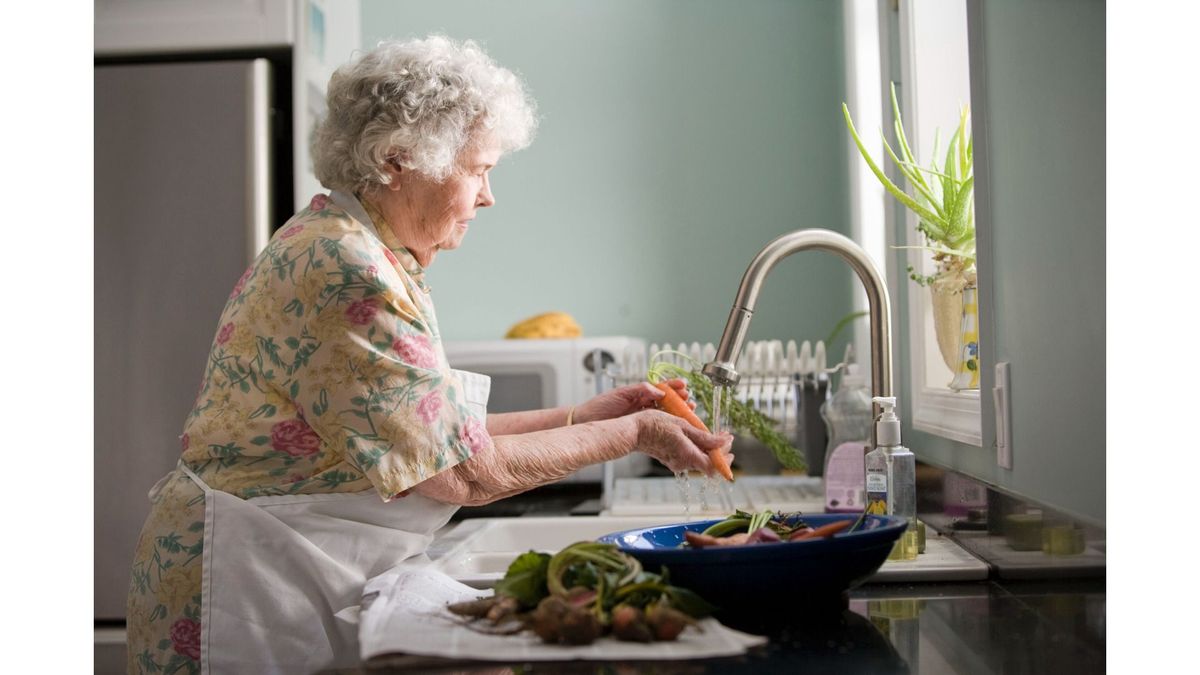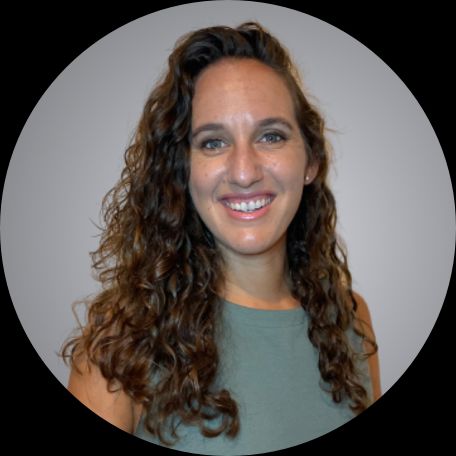
Activities of Daily Living: Understanding ADLs
Familiarize yourself with this common senior care term
As we age, maintaining independence, agency and autonomy are so important to managing our overall approach to aging. But what happens if simple things - like doing laundry, getting dressed or managing finances - aren't so simple anymore?
If you're considering a move to a senior living community for yourself or a loved one, you may have been asked about whether or not you need support for activities of daily living (ADLs) or instrumental activities of daily living (IADLs). Activities of daily living relate to basic self care tasks and play a critical role in determining the type of senior living environment in which you or a loved one will thrive, so it's important to understand what they are - and what they're not.
What are the 5 activities of daily living (ADLs)?

The definition of ADLs is quite simple: ADLs are self-care activities necessary for living independently, such as bathing or getting dressed. The concept of ADLs were first proposed in the 1950s by Sidney Katz, a physician who focused on geriatric care. Katz founded his study on a person’s own functional capabilities and ability or inability to perform the basic functions of ADLs.
Katz went on to create an assessment tool to monitor competency in managing the activities of the daily living, using a sort of daily living scale. ADLs are a way to measure how well a person is able to live independently and function on a day-to-day basis. While there are many different scales that nurses and other medical personnel use to measure these functions, Katz's ADL remains the most common.
To understand the types and levels of assistance a person may need, you first need to recognize their level of competence with self care tasks - especially if you are considering a move to an assisted living facility. By using an ADL assessment tool, you can determine what kind of care is needed and if home care is even an option. There are 5 basic ADLs:
- Bathing and personal hygiene: This ADL covers self-care tasks related to bathing and grooming, such as showering and washing your hair, and dental and oral care, such as tooth brushing and flossing. In addition, many seniors need to use personal care items such as eyeglasses, contact lenses, or hearing aids.
- Toileting and continence: Toileting has several components to consider. Is the person physically able to use the toilet when needed? Do they have trouble sitting or standing up by themselves? If they have an urgent ned to go, can they walk quickly? Are there other physical and mental capabilities or constraints that make it difficult to wipe, such as dementia? Are they even aware of the need to go? While many seniors manage incontinence well, others may struggle more.
- Dressing: This activity of daily living is about being able to select appropriate attire, get dressed and undressed independently and the ability to manage fasteners like buttons, zippers or snaps.
- Eating (excluding meal preparation): Can your loved one feed themself, including drinking without spilling? Are they able to chew and swallow without assistance? For some older adults, especially those in advanced stages of Alzheimer's disease or other related dementia, feeding and eating can become challenging.
- Transferring/mobility: Older adults can sometimes have difficulty walking or moving from one location to another without help. This activity of daily living also focuses on the ability to change from one position to another, as you need to do when standing up from a seated position, getting out of bed, getting into a bathtub, or stepping in or out of a car.
What are the 8 instrumental activities of daily living (IADLs)

While the basic ADLs are what matter most when you're determining the type of care you or your loved one needs (especially if you are considering an assisted living community), it's also important to keep in mind what medical professionals call the instrumental activities of daily living, or IADLs.
Instrumental activities of daily living are a more complex set of organizational skills related to living independently and are an integral part of determining a person’s ability to care for themselves. These daily living activities focus on a set of more complex thinking skills, as well as how a senior navigates their community. They include things like:
- Shopping and groceries: Are they able to manage shopping and meal preparation on their own? Can they make a useful grocery list, buy their own groceries, cleaning supplies, clothing and other household items? Can they budget for their groceries, pay the cashier, and bag and carry their own groceries?
- Using the telephone: Can your loved one use a landline or cell phone, text or otherwise communicate with friends or a family caregiver if something goes wrong?
- Medication management: Is your loved one able to take all their medications in the right dosages and on time? Do they often forget to take medication? Can they handle prescription renewals without assistance and deal with the pharmacy? Are they managing medications, and possible interactions, appropriately?
- Meal preparation: Can your loved one follow a recipe? Can they use the stove or kitchen gadgets safely? Can they plan and prepare their own meals? Are they using expired products?
- Household management: Is your loved one able to tidy and clean their home adequately? Can they handle laundry and linens? Are you seeing evidence that housecleaning and home maintenance are becoming more difficult?
- Transportation: Can your loved one drive or take public transportation? Can they use the GPS on their car screen or Smartphone? Can they understand the bus map and route?Are they safely able to get where they need to go without getting lost or creating hazards for themselves or others?
- Companionship and community: Is your loved one connected to a community, spending time with other people on a regular basis? Or is isolation contributing to a negative mental state?
- Money Management: Can your loved one handle money appropriately? Are they paying bills on time and managing financial assets well? Are they at risk for online scams?
Additional evaluation opportunities for IADLs
Occupational therapists sometime use additional evaluations with the Lawton-Brody scale while completing patient assessments. The American Occupational Therapy Association identifies the following 7 IADLs that may be performed alongside the original IADLs on the Lawton-Brody scale.
- Care of others
- Care of pets
- Child rearing
- Communication management
- Community mobility
- Religious observances
- Safety procedures and emergency responses
Why are ADLs and IADLs important?
The ADL and IADL assessments are important to assess the older person’s ability to “function on their own.” This is critical to making medical decisions or decisions about their living arrangements.
Intervention by family caregivers is not immediately needed just because a loved one is not able to handle one of the key life tasks in ADLs. Sometimes occupational therapists can help seniors find ways to handle the basic activities of daily living without the assistance of another person or with the use of assistive devices.
ADLs and IADLs aren’t just helpful to family members and caregivers but are also metrics used in home care services to determine eligibility for financial assistance and care services. State government aid programs and some types of Medicare also do ADL assessments to determine what kind of assistance and level of care elderly or disabled people might qualify for.
ADL Checklist for caregivers

Using a checklist to monitor the level of ADL disability along with IADLs will help to examine which tasks your loved one needs help with and how much assistance is needed. Charting your loved one’s progress will determine what kind of care and support they will need from a qualified professional.

ADL and IADL tools to help with self care

If you or a loved one is finding that only certain ADLs pose a challenge, there is an exciting wave of adaptive equipment and devices for many basic daily tasks. Using tools to age in place and manage daily tasks at home is another possible way to manage this set of ADLs and IADLs if you aren't quite ready for a move to assisted living or other type of senior living community.
Bathroom Safety:
- Grab bars: Provide stable support and prevent falls in showers and bathtubs.
- Non-slip mats: Improve grip and safety on wet bathroom floors.
- Shower chairs: plastic chairs that fit inside the shower to minimize the risk of falling while bathing.
Dressing and Eating:
- Ergonomic utensils: Easy-grip forks, knives, spoons and two-handed cups for comfortable eating assistance.
- Button hooks: Simplify fastening buttons while dressing.
Mobility and Transfers:
- Walking aids: Canes, walkers, and scooters for enhanced stability and movement.
- Lift chairs: Assist in smoothly transitioning from seated to standing positions.
- Bed rails: Provide support while getting in and out of bed.
- Stairlifts: Facilitate safe navigation of stairs in multi-level living spaces.
IADL Support:
- Medication organizers: Pill dispensers to ensure accurate and timely medication intake.
- Large-print calendars and labels: Enhance visibility for managing schedules and tasks.
- Transportation: Subsidized rides to medical appointments.
Assistive technology:
- Smartphones, voice-activated assistants, and reminder systems for improved communication and organization.
ADLs and IADLs assessments: when your loved one is ready to transition out of independent living
It is not always easy to determine if your loved one needs help with their own day to day functioning and activities unless you see them struggle. Once it becomes apparent that they are unable to keep up with tasks around the home or have difficulty getting around, you need to decide where to turn to first. Turning to the family doctor for assessment is a practical first step. The doctor’s assessments can focus on your loved one's physical well-being, cognitive health and emotional well-being.
Social workers, nurses, physicians, and occupational and physical therapists are all qualified to make assessments regarding a senior's need for help with the basic ADLs, and of course, the senior should also be deeply involved in that assessment.
Another great professional to seek out is a geriatric care manager. They are trained to do an entire home health assessment, as well as an ADL assessment. They can connect older adults and their family members with appropriate elder care services, make recommendations to help them remain at home, or with selecting the best senior living community. Remember, your loved one may have concerns that don't come up in the physical evaluation, such as the ability to reach items on high shelves.
All in all, getting your loved one ADLs and IADLs assessed is so important. Once the evaluation is complete, it will clearly state if staying at home with help is an option or if more robust care is necessary. The assessment will open up options for the care they need when they need it, rather than waiting until an emergency situation to intervene.
Why are ADLs important?
What are examples of ADLs?
What does ADL mean in medical terms?
Why are ADLs assessments important?
Marlena del Hierro earned her Master of Arts degree in Gerontology from San Francisco State University and her Bachelor of Arts degree in Human Development from California State University. She also serves in an advisory capacity for Jukebox Health. Marlena is a vocal advocate for evolving the aging paradigm, and is a frequent contributor to public discussions about aging. She has served as a resource for media outlets like WGBH, FOX News, CNBC and the Today Show.
To learn more about Seniorly's editorial guidelines, click here.
